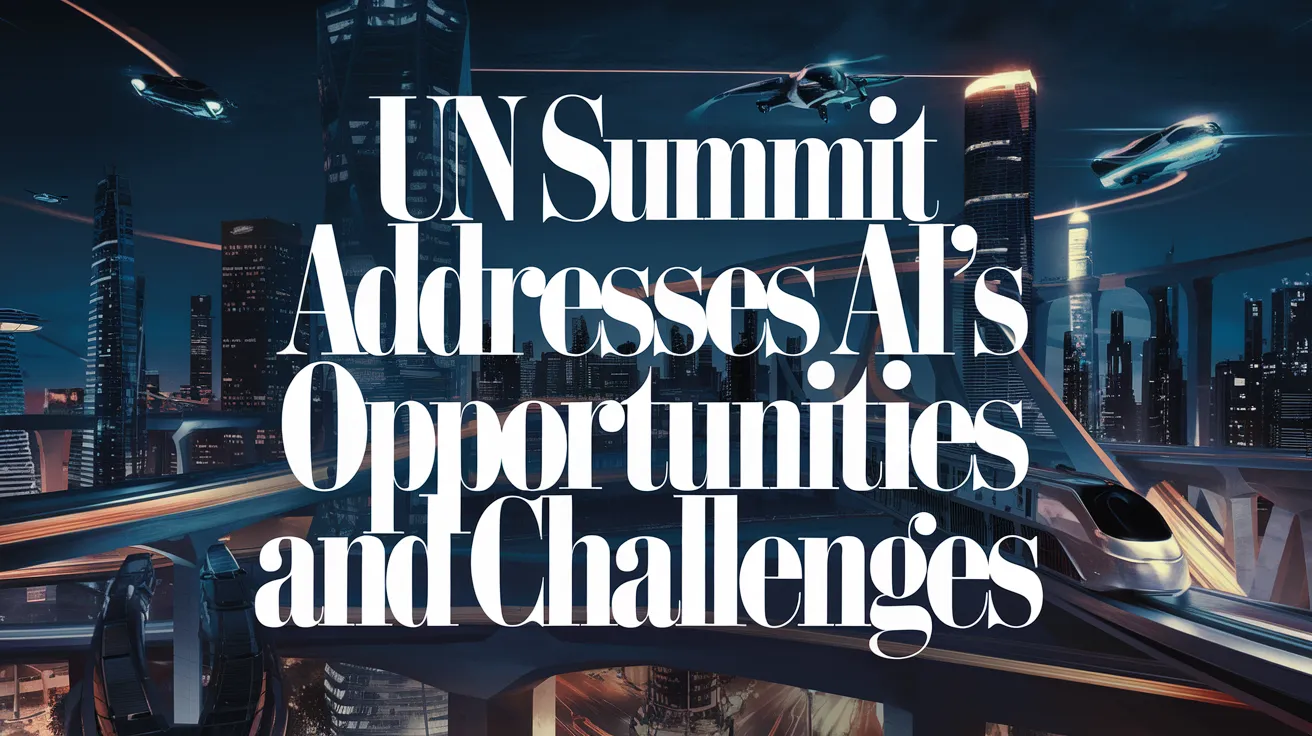UN Summit Addresses AI’s Opportunities and Challenges

The AI for Good Global Summit 2025 commenced in Geneva, gathering a diverse array of stakeholders including governments, tech leaders, academics, and civil society to discuss the role of artificial intelligence in progressing toward the Sustainable Development Goals (SDGs). The summit takes place as the advancements in AI highlight pressing concerns related to inequality, disinformation, and environmental issues.
In a keynote address, Doreen Bogdan-Martin, Chief of the International Telecommunications Union (ITU), urged attendees to recognize their part in this AI generation, emphasizing the need for a society-wide commitment to skills development from early education through lifelong learning.
Addressing AI Risks
Bogdan-Martin also raised alarms about the dangers of unregulated AI proliferation, stating, “The biggest risk we face is not AI eliminating the human race. It is the race to embed AI everywhere, without sufficient understanding of what that means for people and our planet.” This sentiment underscores a growing anxiety as new, autonomous AI systems evolve at a rapid pace. Experts are increasingly concerned about their implications within a short timeframe, with predictions of human-level AI emerging within the next three years raising questions about safety, bias, energy consumption, and regulatory frameworks.
Technological Showcase
The summit features over 20,000 square meters of exhibit space where more than 200 demonstrations showcase innovative technologies, including a flying car, a water quality monitor inspired by fish, brain-computer interfaces, and AI tools for disaster responses. Workshops scheduled throughout the event will delve into the use of AI in various fields such as healthcare, education, and the pressing issues of ethics, gender inclusion, and overall governance.
A highlighted event, AI Governance Day, scheduled for Thursday, aims to tackle the observed gap in global oversight, with an ITU survey indicating that 85% of countries currently lack a dedicated AI-specific policy or strategy, potentially exacerbating digital divides.
Focus on Health Innovation
Health is a significant component of this year’s discussions. On Wednesday, the World Health Organization (WHO) will lead a session focused on enabling AI for health innovation and accessibility. This session will include technologists, regulators, and healthcare professionals addressing how AI can enhance healthcare delivery, particularly in resource-limited settings.
Real-world applications will be highlighted, including AI-powered triage systems for emergency care and diagnostic tools for rural clinics. Furthermore, interdisciplinary challenges like regulatory harmonization and intellectual property rights associated with AI in global health will be explored. The summit will include the AI for Good Awards, recognizing groundbreaking projects that leverage AI for public benefit across various categories including people, planet, and prosperity.
Launchpad for Action
The health-focused segment embodies the summit’s core goal of ensuring AI serves the public good, especially where needs are most urgent. Youth-led robotics teams from underserved communities are presenting solutions for waste management and disaster recovery. Meanwhile, startups are competing in the Innovation Factory, showcasing AI tools designed for educational advancements and climate resilience.
Live demonstrations at the event feature an autonomous orchard robot, a self-sanitizing mobile toilet, and a drone-system for biodiversity and pest monitoring, emphasizing innovative uses of AI technologies.
Concluding her address, Bogdan-Martin urged participants to remember their shared responsibility: “Let’s never stop putting AI at the service of all people and our planet.” This embodies the commitment reflected in the initiative, ensuring the transformative power of AI benefits everyone while addressing existing societal challenges.